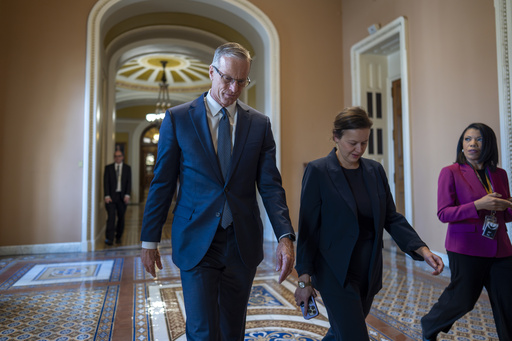WASHINGTON — The Senate approved Kash Patel as the new director of the FBI with a tight 51-49 vote on Thursday, despite concerns raised by Democrats regarding his credentials and fears that he may prioritize partisan interests over impartiality. The confirmation came with Senators Susan Collins from Maine and Lisa Murkowski from Alaska being the only Republicans opposing his appointment.
Patel, a known ally of Donald Trump, has been openly critical of the agency he will now head. He takes the reins of an FBI currently facing significant upheaval, particularly following the recent ousting of various senior officials by the Justice Department. This shakeup has included an unusual request for the identities of numerous agents involved in investigations surrounding the January 6, 2021, insurrection at the Capitol.
Expressing a desire for substantial reforms, Patel aims to lessen the agency’s presence in Washington while shifting focus back to traditional crime-fighting responsibilities rather than intelligence-gathering, which has dominated the FBI’s efforts amid rising national security threats. His past comments, including a vow to confront anti-Trump figures in the government and the media, have alarmed many Democrats, raising fears of potential political vendettas.
Following the confirmation vote, Patel took to social media to express his gratitude, stating he felt privileged to lead the bureau, which he acknowledged has a rich history. He emphasized the need for transparency and accountability within the FBI, stating that the politicization of the justice system must come to an end. “My mission is about empowering dedicated officers to carry out their duties effectively and restoring public trust in the FBI,” he declared.
Patel’s supporters within the Republican Party have rallied behind him due to perceived biases against conservatives in law enforcement under President Biden’s administration and issues surrounding ongoing criminal probes involving Trump. Senator Chuck Grassley from Iowa highlighted Patel’s intention to restore the FBI’s accountability to Congress, the President, and the citizens it serves.
However, Democrats voiced strong objections to Patel’s lack of managerial experience and pointed to previous incendiary remarks that they believe compromised his suitability for the director’s role. Senator Richard Blumenthal of Connecticut warned that the confirmation decision would haunt those who supported Patel, urging them to reflect on how they would justify their vote.
In a dramatic appeal against Patel’s confirmation, several Democratic Senators gathered outside the FBI headquarters earlier on Thursday. Senator Adam Schiff from California asserted that Patel could not be trusted and questioned his integrity to hold such an important position. Patel’s controversial remarks on various platforms over the years—labeling investigators as “criminal gangsters” and labeling certain January 6 participants as “political prisoners”—have fueled concerns about his judgment.
During his Senate hearing in January, Patel attempted to clarify his past comments, claiming that many were misunderstood or taken out of context. He defended a list of officials he considered part of a supposed “deep state,” characterizing it as nothing more than a misrepresentation. Patel reassured Senators that he would not pursue any political agenda if confirmed, promising to ensure the FBI operates without bias and adheres strictly to constitutional law.
Patel was chosen in November to succeed Christopher Wray, who resigned following Biden’s inauguration after serving more than three years in the position. Wray’s time as director included a series of disagreements with Trump, particularly after an FBI search of Trump’s Mar-a-Lago estate took place concerning classified documents.
FBI directors are typically appointed for a ten-year term to shield them from political pressures. Patel previously worked as a federal defender and a prosecutor and initially garnered attention during the Trump administration for his work on the House Intelligence Committee, where he contributed to a controversial memo highlighting errors in the FBI’s investigation of alleged links between Russia and Trump’s 2016 campaign. He later served in significant roles in Trump’s administration, including as a counterterrorism official and as Chief of Staff to the Defense Secretary.




